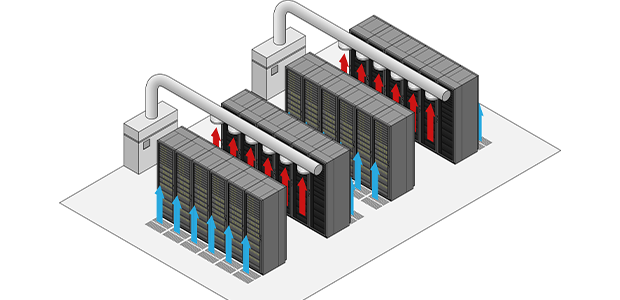
How to know when you should upgrade your chiller unit
Chiller units are an essential part of many industrial and commercial operations. They help maintain the necessary temperature for various processes, from manufacturing to data centres, keeping systems running efficiently. However, like any equipment, chiller units have a lifespan. Over time, they can become less efficient, more costly to operate, and prone to breakdowns. Knowing when to upgrade your chiller can save money and improve overall performance.
But how do you know when it's time to invest in a new chiller unit? Here are some key signs that upgrading your chiller might be the best move for your business.
When your energy bills are increasing
One of the first indicators that it might be time for an upgrade is a noticeable increase in energy costs. Chiller units are among the largest energy consumers in many facilities, so a spike in power usage can be a sign of inefficiency. Older chillers often require more energy to maintain the same cooling output as they age. Components wear out, and the system has to work harder to achieve the desired temperature.
Newer chiller models are designed with energy efficiency in mind. They often come with improved compressors, advanced controls, and more efficient heat exchangers, which can significantly reduce energy consumption. Investing in an upgrade not only helps lower energy bills but also contributes to a more environmentally friendly operation.
If you experience frequent breakdowns and repairs
If your chiller unit requires constant repairs or has frequent breakdowns, it’s a clear indication that an upgrade might be needed. While occasional maintenance is normal, consistent issues can disrupt operations and lead to unexpected costs. Repairing an old or failing chiller can quickly add up, both in terms of time and money.
When you install a new chiller unit you know you will have a reliable operation with fewer interruptions. Modern units are built to last, with components that are designed for durability. This means less downtime and a more consistent performance, which can make a significant difference in your daily operations.
An inability to meet cooling demands
As businesses grow and processes evolve, cooling needs can change. Your current chiller unit may no longer be capable of meeting the increased demand, especially if it was initially installed for a smaller capacity. If you find that your system is struggling to maintain the required temperatures, it's time to consider an upgrade.
Newer chillers are available in a range of capacities and configurations, allowing you to choose a unit that perfectly fits your current needs. Whether you require a larger capacity air-cooled chiller, a water-cooled system for precise temperature control, or a glycol chiller for specialised processes, upgrading gives you the flexibility to adapt to changing demands.
When you have outdated technology
The technology used in chiller units has progressed a long way in recent years. Modern chillers feature advanced controls, variable speed compressors, and more efficient heat exchangers. These innovations not only improve efficiency but also provide better control over the cooling process.
If your chiller is more than ten years old, it likely lacks these modern features. An upgrade can provide you with access to the latest technology, including smart controls that allow for real-time monitoring and adjustments. This can lead to more consistent cooling and better overall system performance.
The benefits of upgrading your chiller unit
Upgrading your chiller unit brings a range of benefits. Not only can it result in lower energy costs and fewer breakdowns, but it also provides an opportunity to invest in the latest technology. With improved efficiency, your business can enjoy a more reliable cooling system that meets your current and future demands.
When planning a chiller upgrade, it's important to consider your facility's specific needs. Evaluate your current cooling requirements and identify any areas where your existing system is falling short. Consulting with a professional supplier can help you select a unit that suits your operational needs and budget.
Remember, while the initial investment in a new chiller can be significant, the long-term savings and improved performance make it a worthwhile decision. Upgrading at the right time ensures your business remains efficient, reliable, and compliant with the latest regulations.
In conclusion, recognising the signs that it's time to upgrade your chiller can save you from unnecessary expenses and operational issues. Whether it's rising energy bills, frequent repairs, or simply the need for more advanced technology, a new chiller can provide the solution. By planning the upgrade carefully, you can enjoy a more efficient and reliable cooling system tailored to your business’s needs.

